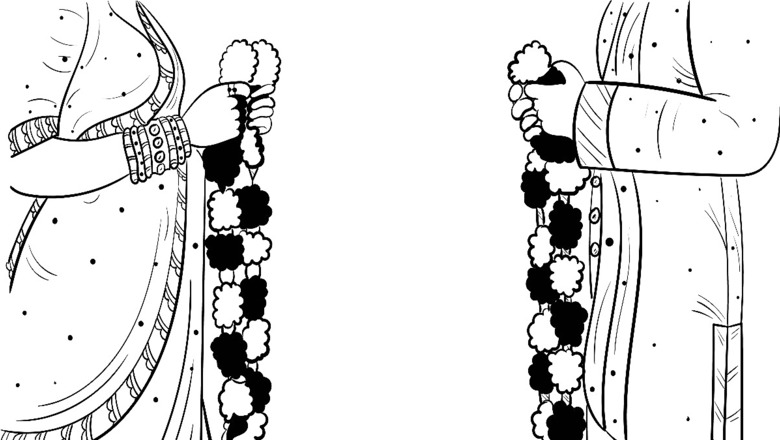
views
Marriage laws in India are governed by various personal laws based on the religion or community, to which the person belongs. The Constitution of India guarantees the right to freedom of religion, allowing individuals to follow their religious faiths. As a result, there are different laws for different communities in India when it comes to marriage, inheritance and divorce. Hindu Marriage Act, 1955, is the most comprehensive law for Hindus, while Muslims are governed by the Muslim Personal Law (Shariat) Application Act, 1937. Similarly, Christians are governed by the Indian Christian Marriage Act, 1872. The Hindu Marriage Act is also applicable for Jains, Buddhists and Sikhs.
Read on to find out more about these matrimonial laws:
The Hindu Marriage Act, 1955
This is an important law that governs the marriage and divorce of Hindus in India. The Act provides for several key provisions related to Hindu marriage, including eligibility criteria, the registration of marriages, restitution of conjugal rights, judicial separation and divorce. One of the key features of the Act is that it recognises the concept of “sapinda relationship,” which prohibits marriages between people who are related to each other within a certain degree of ancestry.
The Hindu Marriage Act, 1955, has played a significant role in modernising and regulating Hindu marriages in India. It continues to be an important legal framework for millions of Hindus in the country.
The Special Marriage Act, 1954
This Act allows civil marriages of couples belonging to different religions or communities. The Act was enacted to provide a special form of marriage that is both secular and non-denominational. It applies to people of all religions who want to marry outside their community, as well as for those who do not wish to perform a religious ceremony.
The Act provides for the solemnisation of marriage by law through registration. The marriage officer, appointed by the government, has the power to register marriages, issue certificates, and maintain records of marriages. The Act also provides for the publication of a notice of intended marriage, and any person can object to the marriage within 30 days from the submission of the application, if they have a valid reason. The Act also lays down the conditions for the marriage, such as age, consent, and mental capacity.
The Indian Christian Marriage Act, 1872
This Act regulates the solemnisation of marriages among Christians in India. It applies to Christians of all denominations, and it provides for the registration of Christian marriages. The Act lays down the rules for the solemnisation of the marriage, including the age of the parties, their consent, and the presence of witnesses. This legislation also provides for the dissolution of marriages by divorce, judicial separation, or annulment.
Under this Act, a Christian marriage can be solemnised by a minister of religion authorised by the government, or by any other person who has been granted a licence to solemnise marriages.
Muslim Personal Law (Shariat) Application Act, 1937
The Act was introduced to ensure that Muslims in India are governed by their personal laws, rather than the secular laws that govern other citizens of India. The Act applies to all matters of personal law, including marriage, divorce, inheritance, and maintenance. It provides for the application of the Shariat, which is the Islamic law, to Muslims in India.
The Act was enacted in response to demands from Muslim communities in India for the application of their personal laws in matters related to marriage, divorce, and inheritance. It was also an attempt to address concerns about the uniform application of secular laws across diverse religious groups in India.
Read all the Latest Lifestyle News here
















Comments
0 comment